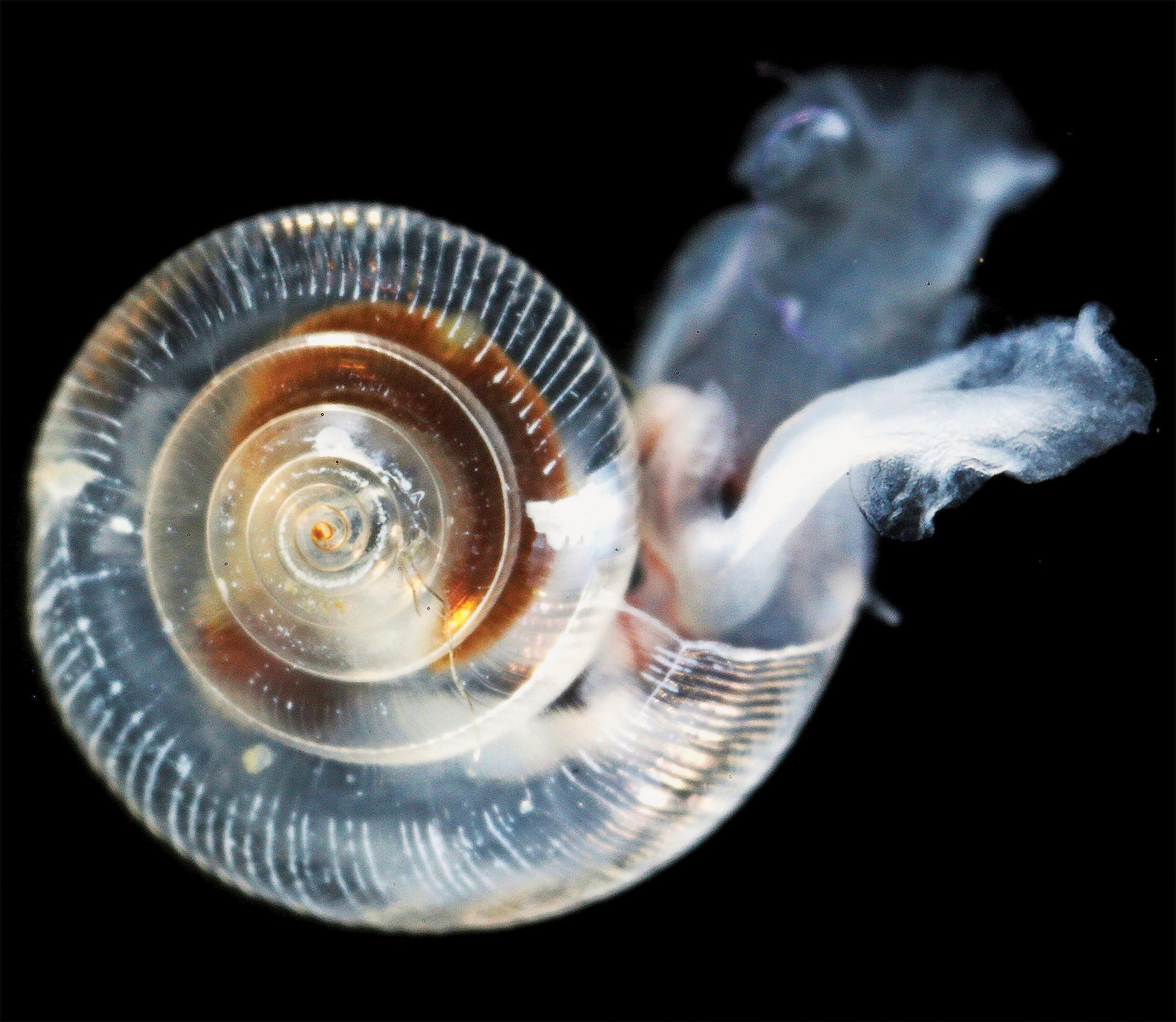Can a lawsuit against the EPA help solve ocean acidification?
This is an unhealthy pteropod showing effects of ocean acidification — including ragged, dissolving shell ridges on the upper surface, a cloudy shell in the lower right quadrant and severe abrasions.
Earth’s atmosphere isn’t the only place taking the heat of our carbon dioxide emissions.
Thirty percent of the carbon dioxide we put into the atmosphere is actually absorbed by the Earth’s oceans, spurring a chemical reaction that makes the seawater more acidic.
And while changes in seawater pH can be harmful to many types of marine life, scientists are especially concerned about organisms like shellfish and coral, whose calcium carbonate structures dissolve in acid.
The Center for Biological Diversity recently filed a lawsuit against the Environmental Protection Agency (EPA) for failing to set appropriate standards to protect US coastal waters. Emily Jeffers, an attorney for the Center for Biological Diversity, calls ocean acidification “a huge problem.”
“Over the last 200 years … the ocean has become approximately 30 percent more acidic, which is really just a huge change if you think about it,” Jeffers says. “For example, an oyster that used to be able to build its shell, the 30 percent [increase in acidity] changes [it] enough to make that shell begin to dissolve. And in the last 300 million years of Earth's history, that is the fastest acidification event that the Earth has experienced.”
Jeffers says that in 2007, the Center for Biological Diversity began pressing the EPA to tighten its pH standards for coastal waters, using the Clean Water Act to make its case.
“The way the Clean Water Act works is the federal government, the EPA, sets water quality criteria and then the states go ahead and use that criteria to set water quality standards for their own bodies of water,” Jeffers says. “And [states] have to either use the federal criteria or create standards that are equal to or better than the federal criteria, and we thought that the federal criteria, the pH criteria, wasn't quite strong enough and needed to have less room for error.”
The EPA did not respond to petitions by the Center for Biological Diversity leading up to the lawsuit, or Life on Earth’s requests for comment.
Jeffers acknowledges that ocean acidification is an international issue that can’t be solved without controlling carbon emissions and transitioning to renewable energy on a global level. But in the near term, she says, there are ways of mitigating acidification locally. The Center for Biological Diversity hopes tighter EPA criteria will help limit local pollution sources.
“We can reduce local inputs that are increasing acidification,” Jeffers says. “Local runoff, local stormwater, agricultural discharge, those are all discharges that contain chemicals that exacerbate acidification. If we can get those local pollution sources under control, that might give the ecosystems a bit of a time to adapt or to get used to those acidified conditions while we tackle climate change.”
For Jeffers and her team, the lawsuit is about gaining momentum against a rising tide.
“We have to start somewhere, and the EPA has acknowledged that the Clean Water Act is applicable to ocean acidification and that it is their duty and the states’ duty to identify waters that are impaired,” Jeffers says.
The EPA has 60 days from "service of process" to respond (to the legal paperwork). From there, they may file a motion to dismiss the Center for Biological Diversity’s complaint, or choose to answer it.
“I think their response will be, ‘Well, we don't know what the best water quality standard is,’” Jeffers says. “But there's always going to be better science in the future. That doesn't prevent us from acting now, especially since we have a duty to act now and to use the best available science to set water quality standards.”
This story is based on an interview that aired on PRI’s Living on Earth with Steve Curwood.
Every day, reporters and producers at The World are hard at work bringing you human-centered news from across the globe. But we can’t do it without you. We need your support to ensure we can continue this work for another year.
Make a gift today, and you’ll help us unlock a matching gift of $67,000!
